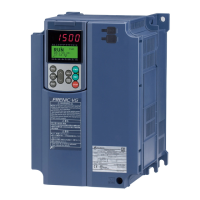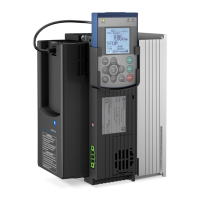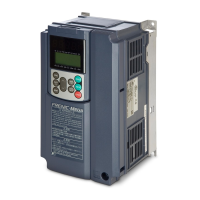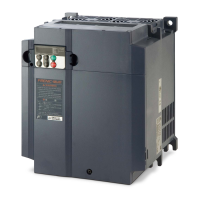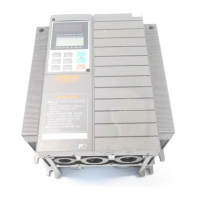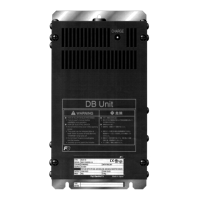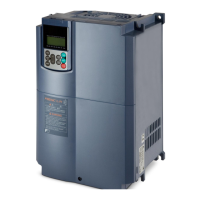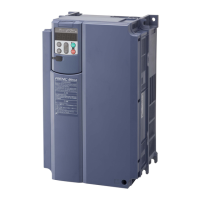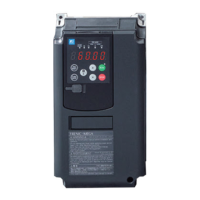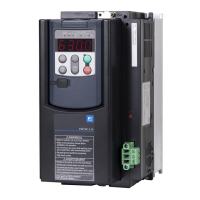9.2 CANopen Communication
9-12
[ 2 ] Terminal mode
(1) RJ-45 connector (COM port 2) for CANopen communication
Figure 9.2-2 and Table 9.2-2 show the pinout and signal description.
Figure 9.2-2 RJ-45 connector’s Pinout for CANopen Communication
Table 9.2-2 CANopen’s signals
Pin Signal name Description
1 CAN+ CAN signal, high side *1
2 CANGND CAN ground signal *3
3 CAN- CAN signal, low side *1
4 DX- RS-485 signal, low side *2
5 DX+ RS-485 signal, high side *2
6 NC Not connected
7 GND Ground signal
8 NC Not connected
*1: The pins used in the CANopen communication are the pin nos 1 and 3.
*2: These Pins No. 4 and 5 are for RS-485 communication.
*3: This pin is the ground one for CAN bus. In order to reduce the influence of the noise as much as possible, it is
recommended to use this pin.
(2) CANopen communication cable
Use a standard LAN cable (US ANSI/TIA/EIA-568A category 5 compliant, straight cable) for the communication.
Table 9.2-3 lists the maximum cable lengths.
Table 9.2-3 Maximum CANopen Cable Length
Baud rate (bit/s) 20 k 50 k 125 k 250 k 500 k 800 k 1 M
Maximum cable length 2500m 1000m 500 m 250m 100m 50m 25m
(3) Connecting a terminating resistor
When the inverter is connected to either end of CANopen communication cable, set the terminating resistor
(SW6=ON). SW6 is shared between RS-485 communications and CAN bus communications.
If these communications are used together and the terminating resistor is placed in each inverters, turn SW6 “OFF”
and use an external terminating resistor if required. For details, refer to Chapter 2 “2.2.8 Operating various
switches”.
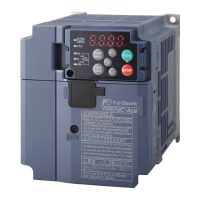
